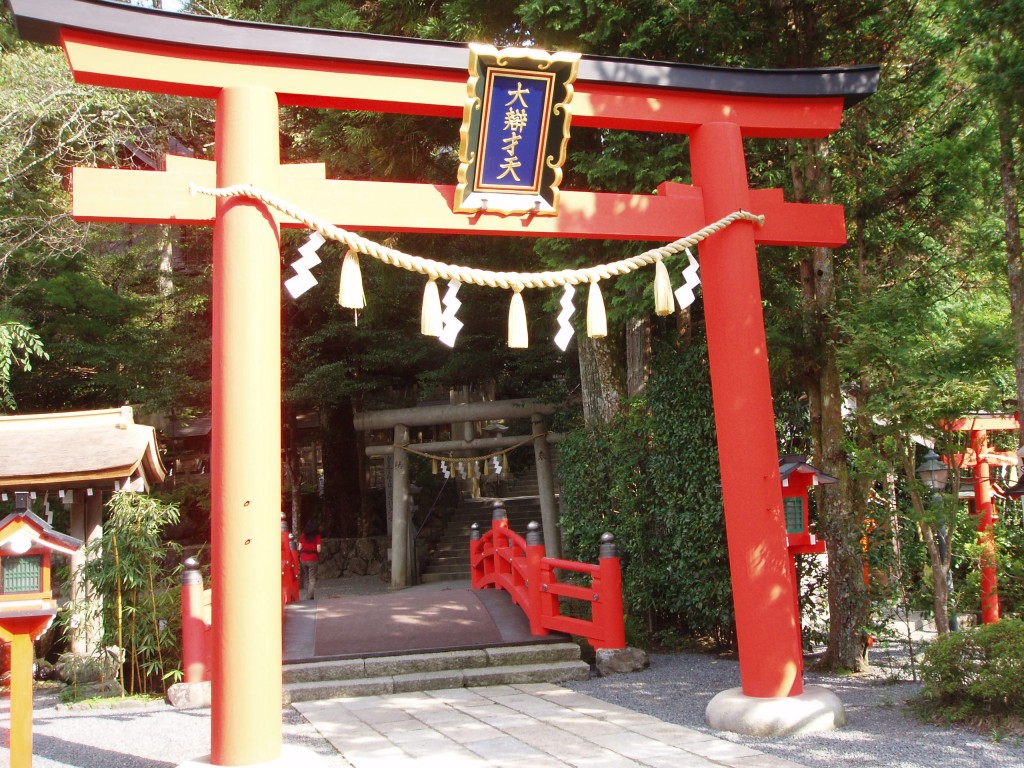
Entrance torii to Tenkawa Shrine, which lies on the slope of a hill
Tenkawa is a notable shrine in Nara Prefecture, which has long had an association with the performing arts and has recently won a reputation also as a ‘power spot’ with a strong sense of spiritual energy. The information below comes from an excellent website dedicated to Noh, which contains information in English about every single detail of the medieval art form. For anyone with the slightest interest in Japanese culture, it’s an invaluable resource and a true gem of the internet.
********************************************************************************************************
Why are Tenkawa shrine and Noh closely connected?
Tenkawa shrine in Yoshino, Nara Prefecture, is famous as the scene of a popular mystery novel by Uchida Yasuo and has recently become one of the popular “power spot” spiritual places thought to give people health and more energy.
The shrine, which dates from the Asuka period (592-710), is dedicated to Benzaiten (known in Hinduism as Sarasvati, the goddess of fortune and arts). It is closely connected to Noh, having been used for performances since olden times, to ward off evil spirits and worship ancestor spirits. The fine items owned by the shrine include a mask of Akobujō (old man) that was allegedly used by Zeami and a gorgeous brocade kimono dedicated by Toyotomi Hideyoshi.
Zeami’s son, Jurō Motomasa, took part in some pieces there for dedication to the goddess of performing arts and also offered prayers. The author of a number of masterpieces, including “Sumida-gawa” and “Yoroboshi,” he was also a master performer who compared favourably with his father. Nevertheless, he was barred from places involved with showy activities after the then-shogun Ashikaga Yoshinori shifted his favour to Motomasa’s cousin and Zeami’s nephew, Onami.
In the face of adversity, Motomasa devoted himself to further practice. He performed “Tōsen” for dedication to Tenkawa shrine and offered a Jō mask (one of an old man), hoping to extricate himself from his situation. The wish did not come true, however, and he died suddenly at the age of 30. The cause of his death remains a mystery, but some say he was involved in a political confrontation between the Northern and the Southern Imperial Courts.
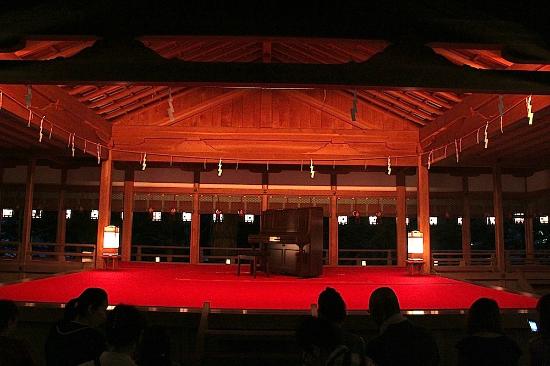
Tenkawa Noh stage, facing towards the kami
The photo above was taken by ‘groundnetbreaker’, who also posted the piece below to tripadvisor. I’m re-posting it here because it gives a good indication of what a ‘power spot’ means to young Japanese.
**********************************************************
This shrine is so special. I must say this is where original and traditional area of any religion in Japan. In first, this area is very deep to anyone to walk in from NARA flat area when there are no road to walk. but this shrine established since 7th century. I could imagine how sacred and devine place when 7th century. since then, those ancestors had lived for long long time.
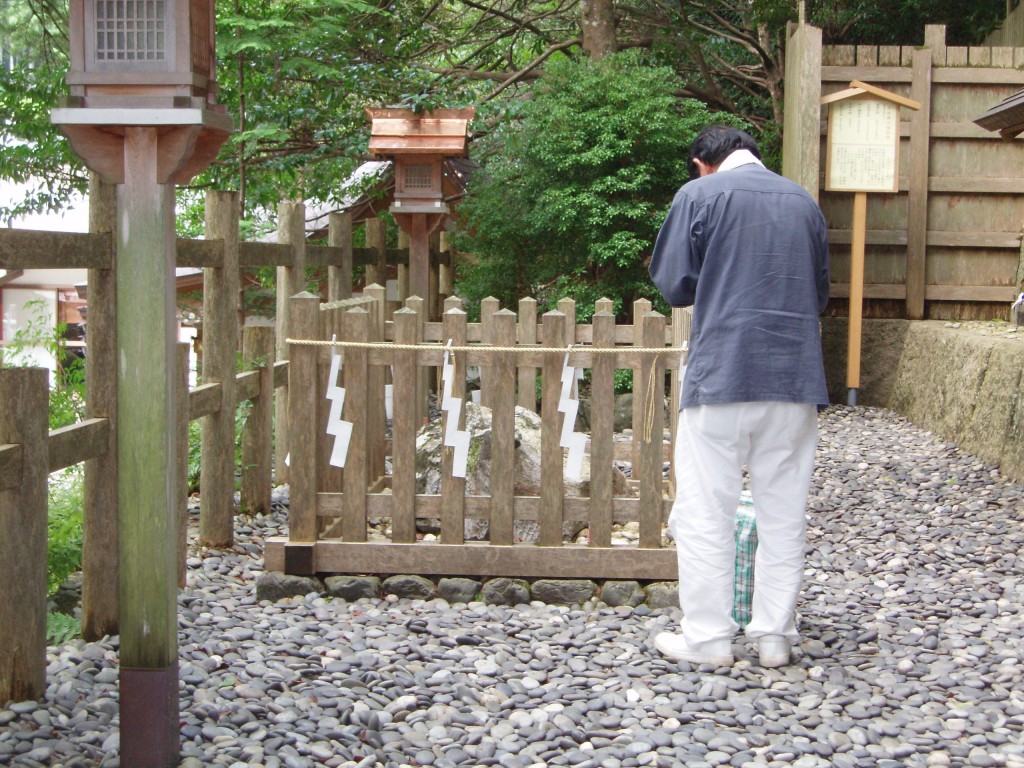
The rocks at Tenkawa radiate with spiritual presence and are the object of worship
high altitude around 700m. deep like snowing here… When you enter this area, you will feel this area has been shrine forever human exsist. So, special air. high vibe. best you do practice for higher freq meditaion. but if you touch with ground or put your feet into river, you feel connection of difference.
There are many GODS lived inside of shrine. Some from earlier era of shrine, some I guess old around 15-16 centuries. but most of GODS you can not see. Some GODS can review only sepcial day. most centered GODS here in this shrine are SARASVATI (Hindu’s GODS).
Gods of water. Water is Talent. Talent is Fortune. So many known artiest came this shrine and pray and perform in this shrine. and also, This shrine has NOH stage as well.
This NOH stage is awesome. Right across to stage where GODS are staying. So, you perform to GODS which means you do for yourself. This has something to do with very deep philosophy of life… I love it.
Anyway, I would suggest you visit this area for 1-2 nights. Because you should go morning practice around 6:45AM for 20min. Lovely to start your new life of day by practice at shrine.
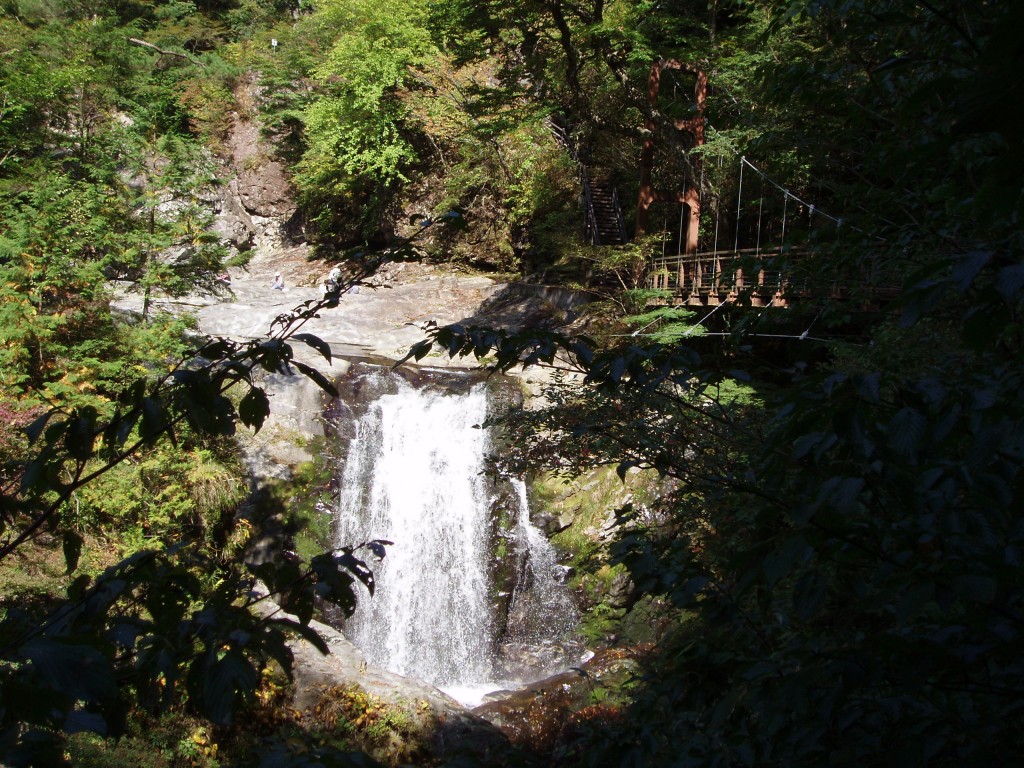
Tenkawa (Heavenly River) flows past the shrine and has an energy of its own
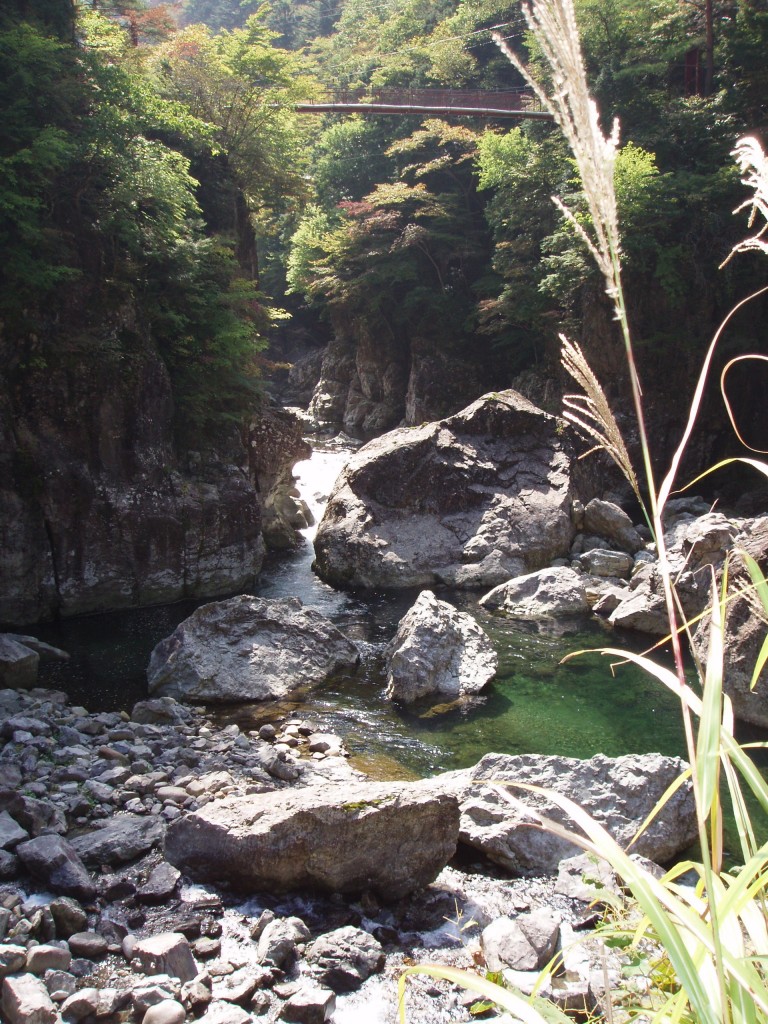
From the Tenkawa power spot you can walk along the river for a couple of hours to the Shugendo hotspot at Dorogawa Onsen

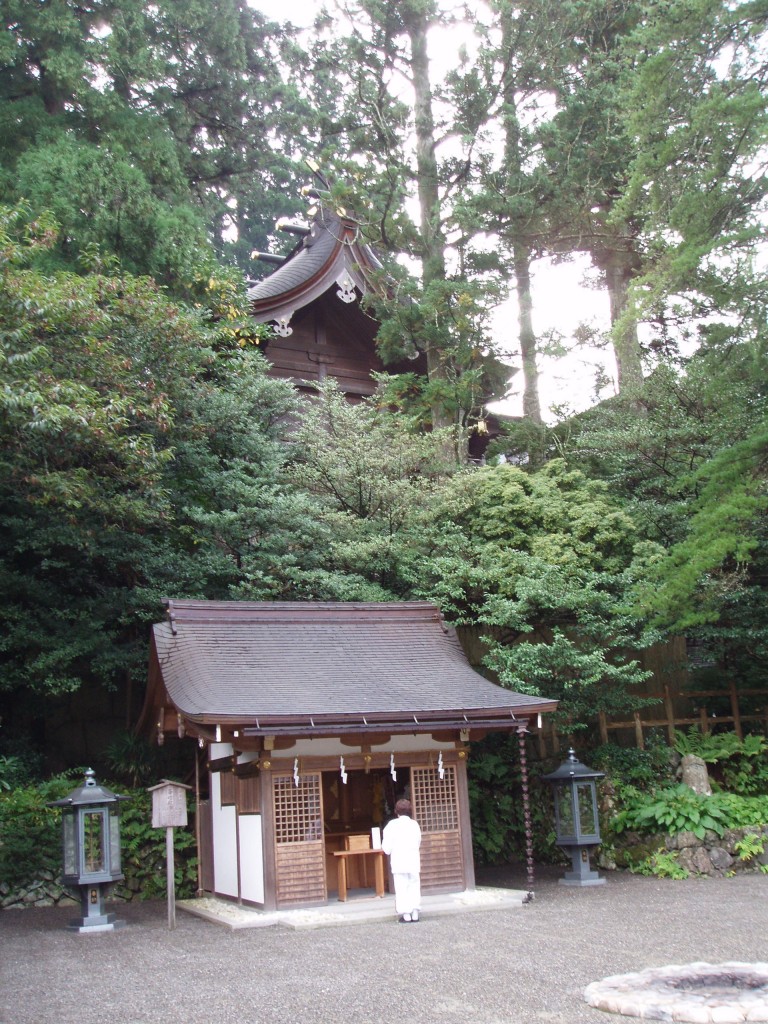
Leave a Reply